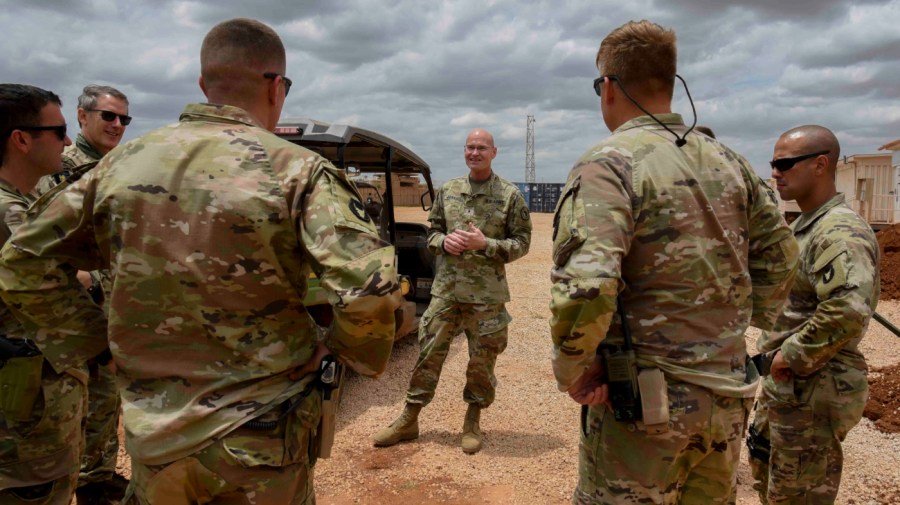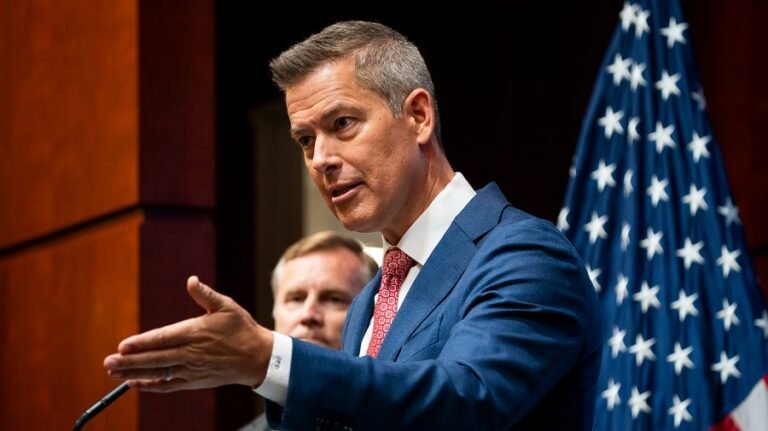
Buried under the dizzying headlines about Iran and Israel, many may miss that the head of the largest terrorist organization in Africa was recently eliminated by American-supported forces. Despite this demonstrated success from a local partner, the U.S. military is giving no indication of taking deployed U.S. troops or treasure out of harm’s way, despite fighting Al-Shabaab for nearly 20 years.
Like so many other miasmic conflicts abroad that don’t benefit Americans, the U.S. fight against Al-Shabaab is another one of those forever wars that President Trump railed against. Al-Shabaab had some origins connected to al-Qaeda and formally declared its allegiance to them in 2012. It currently functions as a clan-based terrorist group predominantly in south Somalia.
Its presence threatens Somalia, the east African coastline, and most east African nations. None of those places are within or remotely near the United States. Many interventionists argue we should deploy troops abroad to defend U.S. interests, which may be broad enough to include international trade. But the notion that Al-Shabaab poses a credible and capable threat to U.S. interests does not withstand scrutiny.
Many economists are predicting Africa will be the next hotspot for an economic boom. That sounds like good news, but the entire African continent makes up only about 2 percent of all current U.S. global trade. Looking more closely, neither Somalia nor any of its bordering countries are even among the top 10 U.S. trading partners within Africa. That means, of all the regions within the continent we trade the least with, Al-Shabaab operates in the region where America has the least at stake.
Some might argue that Somalia’s northern coast is the Gulf of Aden — the gateway to the Suez Canal. Surely, securing Somalia means securing this vital passageway for international trade. Right?
Yes, but disruptions to the Suez Canal by hostile forces in Eastern Africa or Yemen will have a minimal impact on the U.S. In fact, when ships crossing the Red Sea into the Suez were attacked, inbound cargo ships’ volume increased at American ports and were expected to rise more. If anything, adversaries such as China will be far more affected than Americans.
For the allies who would be affected by disruptions, it is their responsibility to defend their trade routes, or else to turn to the U.S. as an alternative for goods. Risking American lives and taxpayer dollars to protect trade that doesn’t even benefit the U.S. is a nonsensical approach that serves neither our military nor our global economic strategy.
There is no question that Al-Shabaab is an evil terrorist group. But the risk it poses to Americans — especially to the U.S. homeland — is practically nonexistent. As of yet, there have been no successful Al-Shabaab attacks on American soil. Their most frequent American victims are either U.S. military servicemembers or American contractors stationed in East Africa. It is circular reasoning to claim we must protect Americans from Al-Shabaab by stationing Americans near Al-Shabaab, since keeping them nearby is the only way they are at risk of being attacked by a group with limited reach.
As unfortunate as it is for the locals or Americans who travel to such risky areas, Al-Shabaab is a regional African problem, not an American problem. But even with an American withdrawal, there will not be a power vacuum. Our primary activity in Somalia is training allies, such as the Somali National Army. We have been in Somalia since 2007, and if our allies cannot put our training to good use without us, it was a terrible investment to begin with. To double down on that bad investment is to fall victim to the sunk cost fallacy.
Additionally, the U.S. is not the main foreign force outside of the region pushing back against Al-Shabaab. Turkey’s biggest military base in Africa is in Somalia’s capital, and it recently doubled the number of troops stationed there. But Al-Shabaab doesn’t only fight against other nations. ISIS has an affiliate in Somalia (Islamic State-Somalia) and is considered a smaller rival to Al-Shabaab. This regional front of the ISIS-versus-al-Qaeda civil war means they fight each other for blood and resources, putting both groups in a weaker position.
Even if the U.S. military fully withdraws from East Africa, we can still help the region by focusing inward. According to the “Peace and Conflict Studies” journal, “In addition to the local population, al-Shabaab seeks to attract foreign fighters both from Somalis in neighboring countries and in countries such as Sweden, Australia, the United Kingdom, and the United States through the use of Internet facilities.”
Without risking a single U.S. service member, and at a fraction of the price, we can crack down on social media recruitment occurring on American soil.
The purpose of the U.S. military is to protect the interests and safety of Americans, not to fight every ragtag group that can menace any small region in the world where we don’t have any vital interests.
Alex Madajian is a foreign policy analyst who has worked as a staffer in Congress and in nonprofits both in Washington and abroad.






